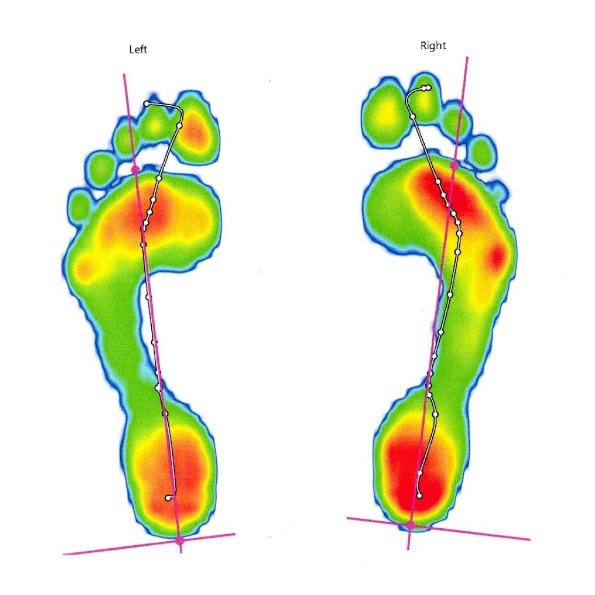How podiatrists use technology to assess your gait

Walking is often perceived as a simple task, with its importance and necessity overlooked. You may be surprised to learn that the average person takes around 216,262,500 steps in their lifetime. Think of Joni Mitchell’s words in Big Yellow Taxi; “you don’t know what you’ve got ‘till it’s gone” and relate this to your feet. Walking is not necessarily seen as a valued task until something hurts or an injury makes it suddenly a lot of effort to walk and get around. We urge our patients to keep on top of their podiatric foot care to ensure their mobility continues to feel effortless through all walks of life.
Podiatrists use biomechanical assessments to assess the cause of a number of commonly seen issues from heel pain to corns being formed by high pressures on the foot. If you experience joint, muscle or nerve pain in your foot, a full assessment may be suggested to determine the root cause.
Biomechanical assessments can give an insight into pathologies and foot structures that are causing pain when being on the feet or simply can help to understand the posture of the foot. The foot is a very complex set of bones all connected with soft tissue and sometimes there are variations which can cause someone’s foot to deal with pressures very differently.
Here at Dulwich Podiatry, we make use of a Footscan mat which is a trackpad that tracks pressure and translates this into a visual description of the footprint, pressure distribution and alignment in real time. Once all the relevant information is captured, we’ll help to explain what the feedback means and how this affects the injury/ pathology and the treatment required, including exercise programmes and whether orthoses are required to alter the gait patterns.
The next step to this is to create a 3D printed bespoke orthotic device which allows full customisation regarding diameters, additions, and reductions. In the appointment a discussion will be had regarding what sort of orthotic device that would be most suitable, for example a three-quarter length orthotic device may be easier for shoe fit than a full-length one, whilst some conditions are better treated with a full-length device.
Call us on 020 8693 6000 or click here to book an appointment now



